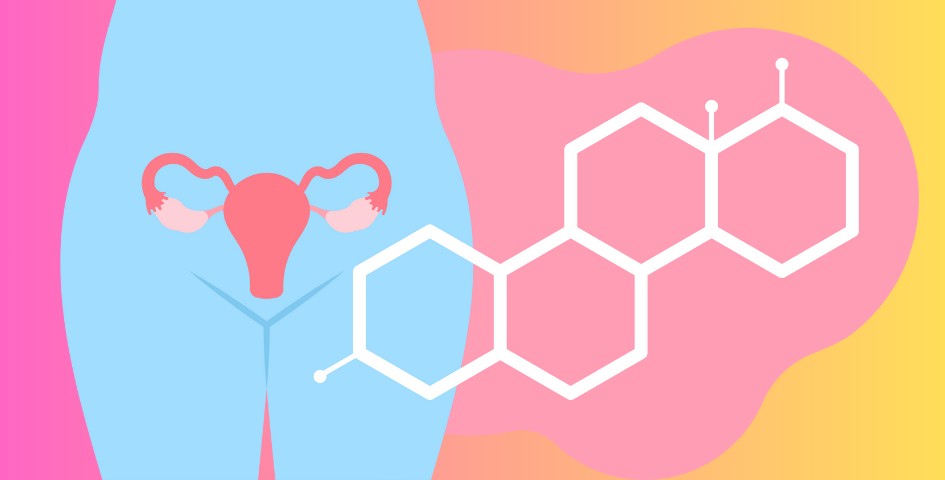Hormones are the body’s chemical messengers, playing a vital role in fertility for both men and women. These substances, produced by different glands, regulate reproductive processes and ensure everything functions smoothly. Understanding the influence of hormones on fertility is crucial for those trying to conceive or simply maintaining reproductive health. At Vrinda Fertility, we specialize in diagnosing and treating hormonal imbalances to enhance fertility outcomes. Our expert team offers comprehensive fertility treatments, including hormonal therapy, IVF, and personalized care to support your journey to parenthood.
Key Hormones Involved in Fertility
Several essential hormones contribute to reproductive health, each with specific functions:
1. Gonadotropins
- Follicle-Stimulating Hormone (FSH): Produced by the pituitary gland, FSH stimulates the growth of follicles in women (which contain eggs) and supports sperm production in men.
- Luteinizing Hormone (LH): LH plays a crucial role in ovulation and hormone production. In women, it triggers egg release, while in men, it supports testosterone production.
2. Sex Hormones
- Estrogen & Progesterone: These female hormones regulate the menstrual cycle, ovulation, and pregnancy maintenance.
- Testosterone: The primary male hormone responsible for sperm production and overall reproductive function.
3. Thyroid Hormones
- Thyroxine (T4) & Triiodothyronine (T3): These regulate metabolism and can impact fertility by influencing ovulation and sperm production.
4. Prolactin
- Produced by the pituitary gland, prolactin helps with milk production in women and affects reproductive hormone levels in both sexes. Imbalances can interfere with fertility.
At Vrinda Fertility, our specialists assess these hormone levels to diagnose underlying fertility issues and provide tailored treatment plans, ensuring the best possible outcomes.
How Fertility Hormones Function
These hormones work in a delicate interplay to maintain reproductive health. Their key roles include:
- Regulating the menstrual cycle
- Stimulating egg development and ovulation
- Preparing the uterus for pregnancy
- Supporting sperm production and maturation
Hormones and Female Fertility
For women, a well-balanced hormonal system is essential for ovulation and pregnancy. The primary hormones involved are:
- Estrogen: Produced by the ovaries, it helps in egg development and prepares the uterus for pregnancy.
- Progesterone: Maintains the uterine lining post-ovulation to support implantation.
- FSH & LH: Control egg development and release during ovulation.
Hormonal Imbalance in Women
Hormonal imbalances can cause irregular cycles, lack of ovulation, and conditions like Polycystic Ovary Syndrome (PCOS), thyroid disorders, and early menopause, all of which can affect fertility. Vrinda Fertility offers advanced diagnostic tests and treatments, including hormonal therapy and assisted reproductive technologies, to address these issues effectively.
Hormones and Male Fertility
For men, hormones regulate sperm production and sexual health. The key hormones include:
- Testosterone: Essential for sperm production and overall male reproductive health.
- FSH: Stimulates sperm production in the testes.
- LH: Regulates testosterone levels to ensure sperm maturation.
Hormonal Imbalance in Men
Low testosterone, thyroid issues, or high prolactin levels can reduce sperm count and motility, affecting fertility. Vrinda Fertility provides specialized male fertility treatments, including hormone assessments and targeted therapies, to improve sperm health and increase the chances of conception.
The Role of Hormones in Pregnancy
Hormones not only help with conception but also play a critical role in early pregnancy:
- Progesterone & hCG (Human Chorionic Gonadotropin): Support the uterine lining and sustain pregnancy.
- Estrogen: Helps in fetal development and maintains pregnancy health.
At Vrinda Fertility, we provide comprehensive prenatal support, ensuring hormonal balance for a healthy pregnancy.
Managing Hormonal Balance for Fertility
A well-balanced hormonal system enhances fertility. Here are some ways to maintain it:
- Healthy Diet: Nutrient-rich foods support hormonal balance.
- Regular Exercise: Helps in maintaining optimal weight and hormone levels.
- Stress Management: High stress can disrupt hormone production.
- Medical Guidance: Seeking advice from a healthcare professional can help diagnose and treat hormonal imbalances.
Vrinda Fertility offers expert consultations and holistic fertility care, guiding couples towards their parenthood journey with advanced medical support and compassionate care.
Conclusion
Hormones are the cornerstone of fertility, orchestrating everything from ovulation to sperm production and pregnancy support. A well-balanced hormonal system increases the chances of conception and a healthy pregnancy. By leading a healthy lifestyle and seeking medical intervention when necessary, individuals and couples can enhance their reproductive health and work towards their fertility goals. Vrinda Fertility is dedicated to helping individuals overcome hormonal imbalances with state-of-the-art treatments and personalized care, ensuring the best possible path to parenthood.




